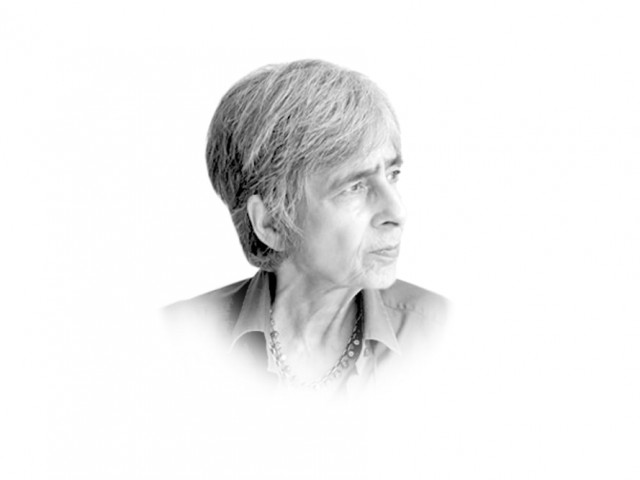Whatever Lola wants…
US plus the army chief himself were involved in the taking of the extensions with Gilani playing a yes-man.

So, what’s new? Which government of Pakistan has ever had control over what the army and its counterparts have done or do? Are collision courses rare? Parliament’s supremacy is a fallacy. And as for “begging” the two gentlemen now on extension, a joke, because the likelihood is that the US plus the army chief himself were involved in the taking of the extensions with the prime minister playing no role other than that of a yes-man.
Lola gets whatever it is that Lola wants — and so it has been from the birth of this country.
Apprehensions were that it would be the president of the republic who might possibly come out with somewhat confused statements after his return from a Dubai hospital — Pakistani hospitals being highly dangerous places according to him. But his prime minister is the one who has outdone him smartly on the ludicrous statements field of play.
The army is the arbiter of Pakistan’s policies and politics, the dominance of which it considers to be its right. Anyone who has doubts on this or wishes to pursue an argument should read Shuja Nawaz’s book Crossed Swords (OUP 2008) and learn how, from the very first year of Pakistan’s coming into being, the politicians have never had military respect or support.
When writing on the 1947 Kashmir war, a failure and a stalemate, after describing how that war was “an almost amateur affair run largely by relatively inexperienced officers with boy scout enthusiasm,” Nawaz comments: “But at the national level, the army felt betrayed by an indifferent and weak political leadership... The unhappiness with the ponderous and meandering decision-making of the politicians led to tensions — some overt, others hidden — between the military and the politicians. This internal conflict fuelled the eventual expansion of military influence in Pakistan and created a serious imbalance between military and political decision-making in the fledgling nation.”
On to the days of Ayub Khan, the 1950s: Nawaz recounts how Ayub Khan, in 1954, presaged his view of the future political system in Pakistan in a document he penned, calling for the creation of a supreme commander’s position to head the joint staff. “In addition to other duties, he should be made the defence member and ex officio member of the cabinet. This will not only knit the services together and lead to economy in pooling things common to all services, but would put a stop to any attempt by politicians to interfere in the internal affairs of the services to promote their personal interests.”
Army chief Ayub Khan was planning not only the dominance of the domestic situation but also the foreign policy of the country. The domestic policy was crumbling, whilst the army worked towards a future “in which it would control the direction of the army from the sidelines and later directly. Helping them unwittingly in this quest were the political leaders of Pakistan, making and breaking short-term alliances for individual advantage...”.
This last sentence aptly applies to 2011 (and earlier) and no doubt will apply in the year which starts tomorrow. In our beginning lay our future — civilian governments have come and gone but which one has ever held, or enjoyed, full power? What’s the betting on a happy new year?
Published in The Express Tribune, December 31st, 2011.














COMMENTS
Comments are moderated and generally will be posted if they are on-topic and not abusive.
For more information, please see our Comments FAQ